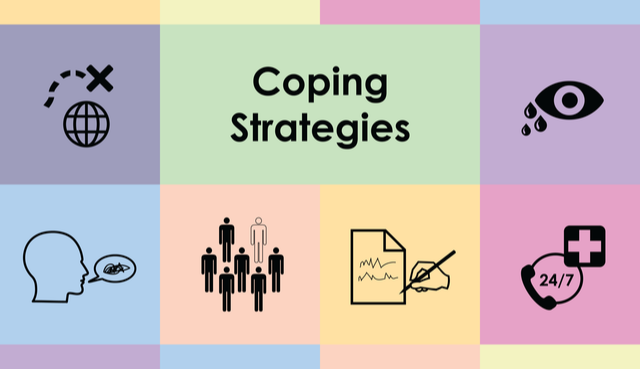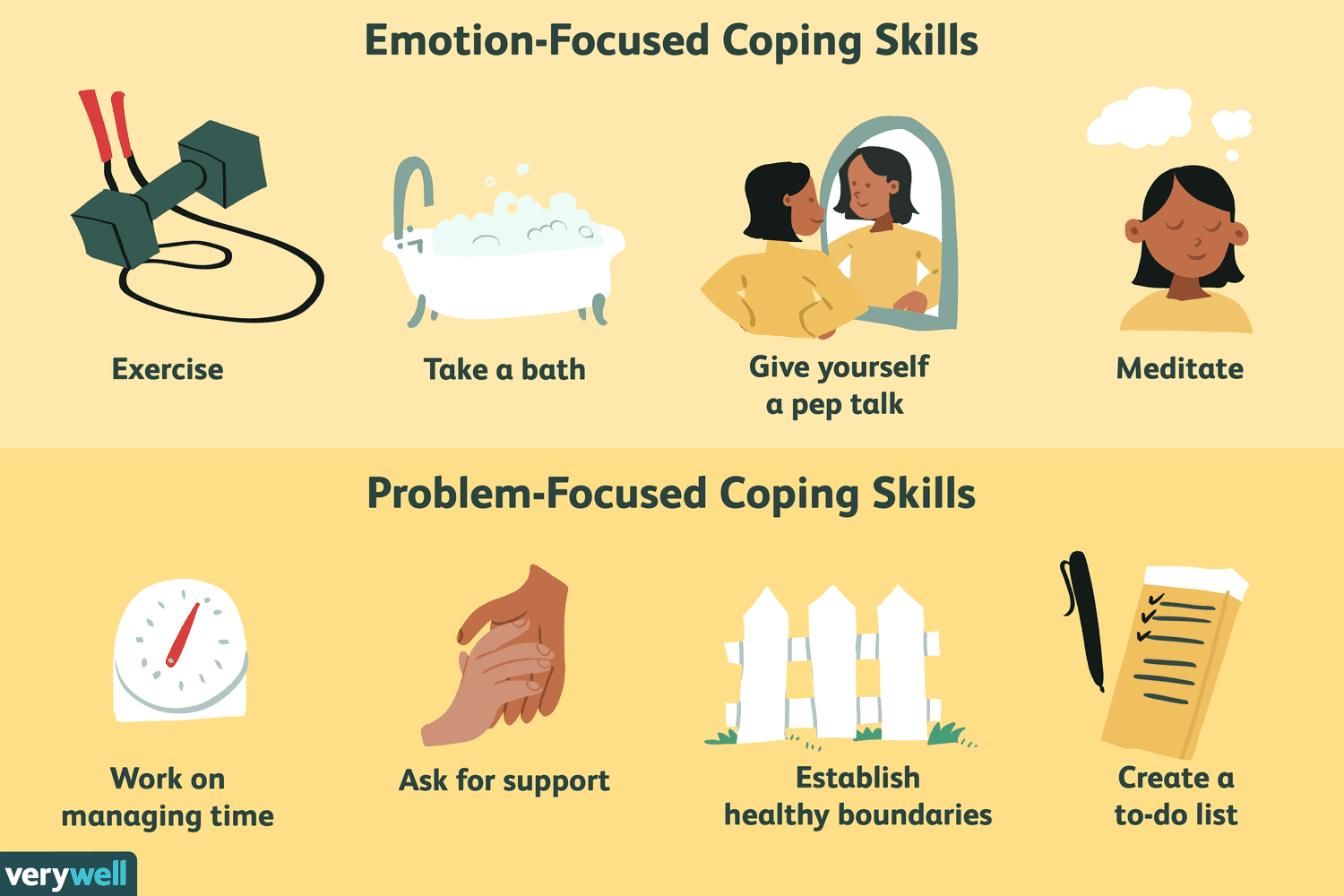Healthy coping skills may help you get through challenging circumstances, whether you were rejected or had a bad day at work. Developing coping skills may help you manage and handle difficult events in life.
Coping skills help individuals handle stress. Stress management may improve your physical and mental health and performance.
Not all coping abilities are equal. Sometimes it's tempting to use quick-fix methods that might cause worse issues later. Establishing good coping skills may lessen emotional suffering and help you overcome challenging circumstances. Healthy coping skills include:
- Establishing and maintaining boundaries
- Practicing relaxation strategies such as deep breathing, meditation, and mindfulness
- Getting regular physical activity
- Making to-do lists and setting goals
This article explores coping skills that can help you manage stress and challenges. Learn more about how different strategies, including problem-focused and emotion-focused skills, can be most helpful.
Problem-Based vs. Emotion-Based

The five main types of coping skills are: problem-focused coping, emotion-focused coping, religious coping, meaning-making, and social support.
Two of the main types of coping skills are problem-based coping and emotion-based coping. Understanding how they differ can help you determine the best coping strategy for you.
- Problem-based coping is effective for addressing stressful situations by eliminating them from your life. For instance, exiting an undesirable relationship may help you feel better than calming your feelings.
- Emotion-based coping is effective for managing emotions when unable to alter a situation or when events are beyond control. Since you can't alter the situation, grief after a loved one's death should be handled well.
Reading Your Performance Review
You open your email to find your annual performance review. The review states that you are below average in several areas and you’re surprised by this because you thought you were performing well. You feel anxious and frustrated.
- Problem-focused coping: You go to your supervisor and discuss how you can enhance your performance. You create a clear strategy to help you do better, and you begin to feel more confidence in your ability to achieve.
- Emotion-focused coping: You read a book during your lunch break to distract yourself from negative thoughts about your job status. After work, you exercise and clean the home to improve your mood and allow you to think more clearly about the problem.
Getting a Teenager to Clean
You have told your teenager he needs to clean his bedroom. But it’s been a week and clothes and trash seem to be piling up. Before heading out the door in the morning, you told him he has to clean his room after school "or else." You arrive home from work to find him playing videos in his messy room.
- Problem-focused coping: You sit your teenager down and tell him that he’s going to be grounded until his room is clean. You take away his electronics and put him on restriction. In the meantime, you shut the door to his room so you don’t have to look at the mess.
- Emotion-focused coping: You decide to run some bathwater because a hot bath always helps you feel better. You know a bath will help you calm down so you don’t yell at him or overreact.
Giving a Presentation
You’ve been invited to give a presentation in front of a large group. You were so flattered and surprised by the invitation that you agreed to do it. But as the event approaches, your anxiety skyrockets because you hate public speaking.
- Problem-focused coping: You decide to hire a public speaking coach to help you learn how to write a good speech and how to deliver it confidently. You practice giving your speech in front of a few friends and family members so you will feel better prepared to step on stage.
- Emotion-focused coping: You tell yourself that you can do this. You practice relaxation exercises whenever you start to panic. And you remind yourself that even if you’re nervous, no one else is even likely to notice.

